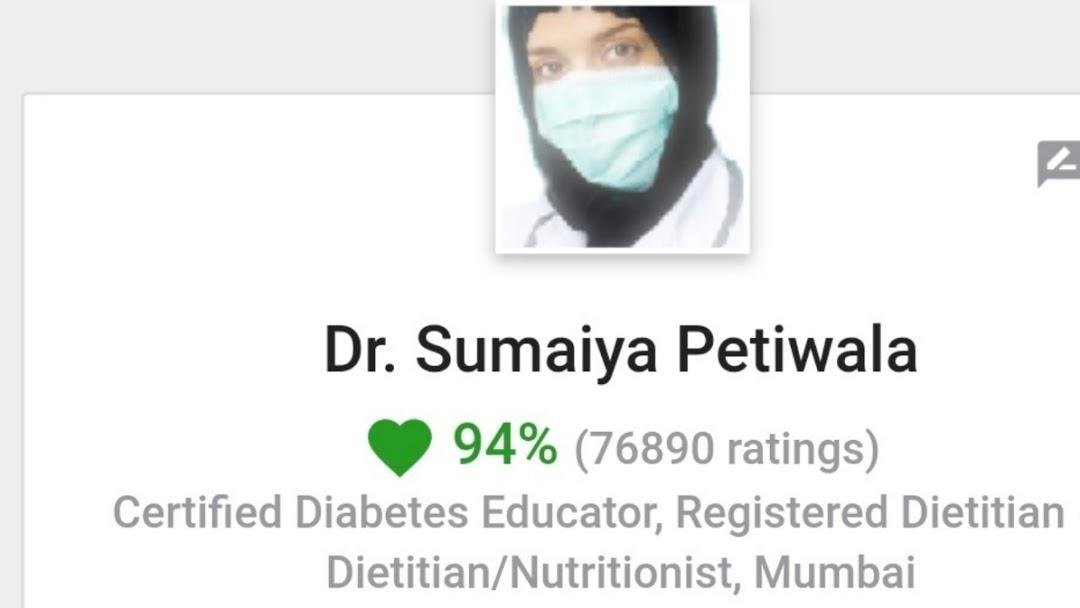Losing fat is a common goal, and it involves changes to diet and exercise. Understanding digestion and nutrient absorption is key to effective fat loss. This post by Dr. Sumaiya NutriCare Clinic explains the process and provides actionable tips.
Understanding Digestion and Nutrient Absorption for Effective Fat Loss
- The Digestive Process: A Step-by-Step Guide
- Nutrient Absorption in the Small Intestine
- The Role of Macronutrients in Fat Loss
- Creating a Calorie Deficit for Fat Loss
- Essential Nutrients for Overall Health
- Practical Tips for Fat Loss and Healthy Digestion
- Monitoring Progress and Making Adjustments
- Conclusion
- References
The Digestive Process: A Step-by-Step Guide
Digestion is the complex process of breaking down food into smaller components that the body can absorb and utilize for energy, growth, and repair. It’s a journey that begins in the mouth and ends at the anus, with each organ playing a crucial role. Let’s break it down:
- Mouth: Chewing (mechanical digestion) and saliva (chemical digestion) start breaking down food. Saliva contains amylase, an enzyme that begins carbohydrate digestion.
- Esophagus: A muscular tube that transports food from the mouth to the stomach through peristalsis (wave-like muscle contractions).
- Stomach: Food mixes with gastric juices (hydrochloric acid and pepsin), which further break down proteins. The stomach also churns food, creating a semi-liquid mixture called chyme.
- Small Intestine: The primary site of nutrient absorption. It’s divided into three sections: the duodenum, jejunum, and ileum. Enzymes from the pancreas and bile from the liver (stored in the gallbladder) are released into the duodenum to aid in the digestion of carbohydrates, proteins, and fats.
- Large Intestine: Absorbs water and electrolytes from the remaining indigestible matter, forming feces. It also houses gut microbiota, which play a role in vitamin production (like vitamin K) and immune function.
- Rectum and Anus: The rectum stores feces until elimination through the anus.

Nutrient Absorption in the Small Intestine
The small intestine is where the magic happens! Its lining is covered in tiny, finger-like projections called villi, which increase the surface area for maximum nutrient absorption. These villi, in turn, have even smaller projections called microvilli, further enhancing absorption.
| Nutrient | Broken Down Into | Absorption Mechanism |
|---|---|---|
| Carbohydrates | Monosaccharides (glucose, fructose, galactose) | Active transport and facilitated diffusion |
| Proteins | Amino acids and small peptides | Active transport |
| Fats | Fatty acids, monoglycerides, and glycerol | Simple diffusion (short-chain fatty acids) and micelle formation followed by diffusion (long-chain fatty acids) |
| Vitamins | Varying forms | Various mechanisms (fat-soluble vitamins are absorbed with fats; water-soluble vitamins are absorbed through diffusion or active transport) |
| Minerals | Ionic forms | Various mechanisms (active transport, facilitated diffusion, and passive diffusion) |
Once absorbed, nutrients enter the bloodstream (for water-soluble nutrients) or the lymphatic system (for fat-soluble nutrients) and are transported to the liver.
The Role of Macronutrients in Fat Loss
Macronutrients (carbohydrates, proteins, and fats) provide the body with energy (calories). Understanding their roles is crucial for fat loss:
- Carbohydrates: The body’s primary energy source. Excess carbohydrates can be stored as glycogen in the liver and muscles, and any further excess can be converted to fat. Focus on complex carbohydrates (whole grains, fruits, vegetables) over simple sugars.
- Proteins: Essential for building and repairing tissues. Protein has a higher thermic effect than carbohydrates or fats, meaning the body burns more calories digesting it. It also promotes satiety (feeling full), which can help with calorie control.
- Fats: Important for hormone production, cell function, and absorption of fat-soluble vitamins. Healthy fats (unsaturated fats found in avocados, nuts, seeds, and olive oil) are beneficial. Limit saturated and trans fats.
Consuming too many calories from *any* of these macronutrients, regardless of the source, can lead to weight gain. A balanced approach is key.
Creating a Calorie Deficit for Fat Loss
To lose fat, you need to create a calorie deficit, meaning you burn more calories than you consume. A deficit of 500 calories per day typically results in a weight loss of about 1 pound per week (3500 calories = 1 pound of fat). This can be achieved through:
- Reducing Portion Sizes: Be mindful of how much you’re eating. Use smaller plates and measure your food.
- Choosing Lower-Calorie Foods: Opt for nutrient-dense foods that are lower in calories, such as fruits, vegetables, lean proteins, and whole grains.
- Increasing Physical Activity: Exercise burns calories and helps build muscle, which increases your metabolism. Aim for at least 150 minutes of moderate-intensity or 75 minutes of vigorous-intensity aerobic activity per week, plus strength training at least twice a week.
- Mindful Eating: Pay attention to your hunger and fullness cues. Avoid distractions while eating.
Essential Nutrients for Overall Health
While focusing on fat loss, it’s crucial to ensure you’re getting enough essential nutrients:
- Vitamins: Organic compounds that play various roles in bodily functions. A balanced diet usually provides sufficient vitamins, but supplementation may be necessary in some cases.
- Minerals: Inorganic elements essential for various bodily processes. Examples include calcium, iron, zinc, and potassium.
- Fiber: A type of carbohydrate that the body cannot digest. It promotes digestive health, helps regulate blood sugar levels, and can contribute to feelings of fullness. Good sources include fruits, vegetables, whole grains, and legumes.
- Water: Crucial for hydration, nutrient transport, and many bodily functions.
Practical Tips for Fat Loss and Healthy Digestion
- Prioritize Whole Foods: Choose whole, unprocessed foods over processed foods, which are often high in calories, unhealthy fats, and added sugars.
- Read Food Labels: Pay attention to serving sizes, calories, and macronutrient content.
- Cook More Meals at Home: This gives you more control over ingredients and portion sizes.
- Stay Hydrated: Drink plenty of water throughout the day.
- Get Enough Sleep: Lack of sleep can disrupt hormones that regulate appetite, leading to increased cravings and potential weight gain.
- Manage Stress: Stress can also affect hormones and eating habits. Find healthy ways to manage stress, such as exercise, meditation, or spending time in nature.
- Include Probiotics and Prebiotics: Support a healthy gut microbiome by consuming probiotic-rich foods (yogurt, kefir, sauerkraut) and prebiotic-rich foods (onions, garlic, bananas). A healthy gut is linked to improved digestion and overall health.
- Eat Slowly and Mindfully: Chew your food thoroughly and savor each bite. This allows your body to register fullness and prevents overeating.
- Limit Sugary Drinks: Sodas, juices, and sweetened beverages are high in calories and offer little nutritional value.
Monitoring Progress and Making Adjustments
Track your progress regularly to see what’s working and what’s not. This could involve:
- Weighing yourself weekly (but remember that weight can fluctuate).
- Taking body measurements (waist, hips, thighs).
- Tracking your food intake using a food diary or app.
- Monitoring your energy levels and mood.
Be prepared to make adjustments to your diet and exercise plan as needed. Fat loss is not always linear, and plateaus are common. If you’re not seeing results, consider consulting with a registered dietitian or healthcare professional.
Conclusion
Understanding the process of digestion and nutrient absorption is fundamental to achieving sustainable fat loss. By creating a calorie deficit, prioritizing whole foods, and making healthy lifestyle choices, you can reach your goals while supporting your overall health. Remember that consistency and patience are key. For personalized guidance and support, consider scheduling a consultation with Dr. Sumaiya.
Ready to take the next step in your fat loss journey?
References
- Gropper SS, Smith JL, Groff JL. *Advanced Nutrition and Human Metabolism*. 7th ed. Cengage Learning; 2017.
- Marieb EN, Hoehn K. *Human Anatomy & Physiology*. 11th ed. Pearson; 2019.
- National Institutes of Health (NIH). Office of Dietary Supplements. [https://ods.od.nih.gov/](https://ods.od.nih.gov/)
#nutritionist #nutritioncoach #healthyeating #dietplan #healthydiet #balanceddiet #weightlossjourney #fatloss #eatwell #nutrientdense #guthealth #dietaryfiber #wholefoods #healthyhabits #lifestylechanges #nutritioneducation #mindfuleating #portioncontrol #caloriecontrol #physicalactivity #nutritioncounseling




